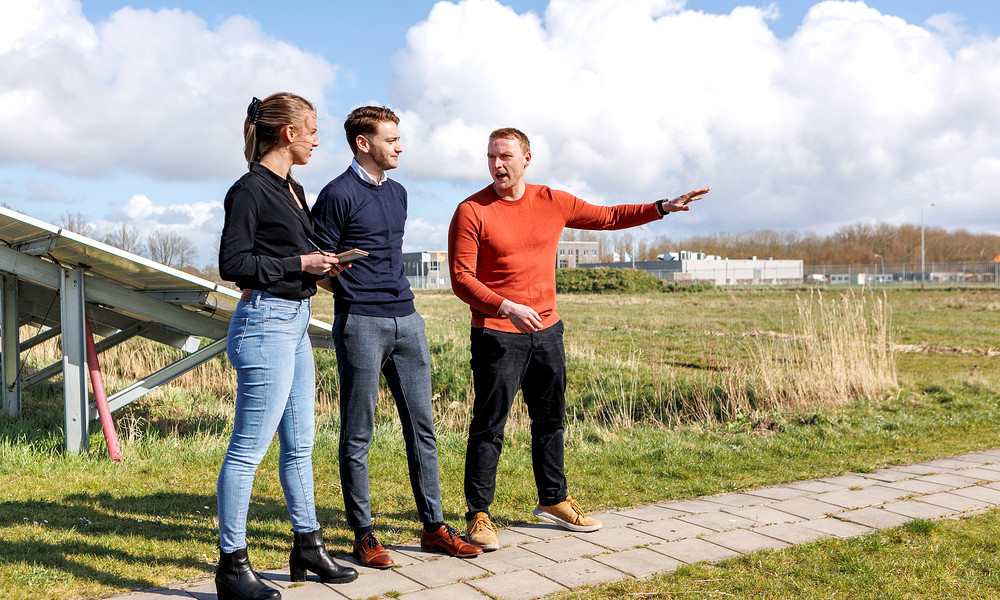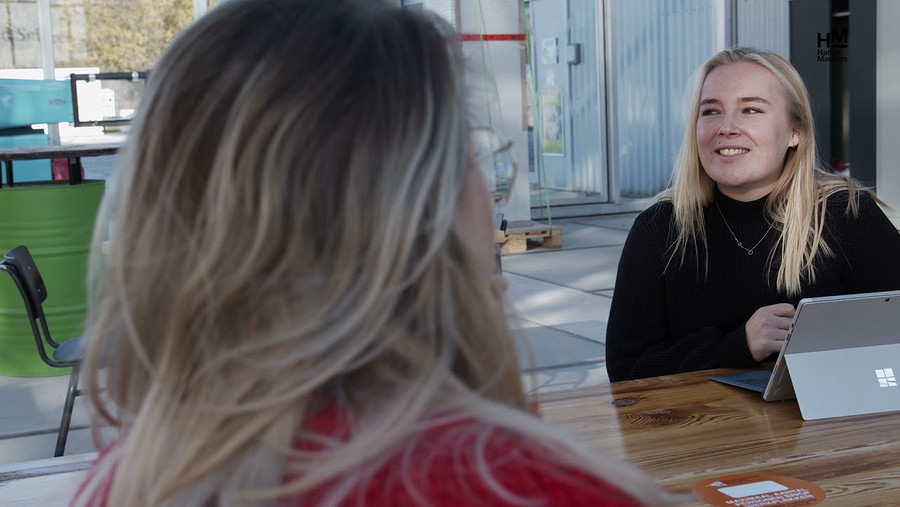Accelerate energy transition initiatives at a regional and (inter)national level
- Master
- Full-time
- 3 semesters
Accelerate energy transition initiatives at a regional and (inter)national level

Do you want to make a difference in realising energy transition? Are you the professional who helps communities make the transition from fossil fuels to renewables? Furthermore, will you get people on board to make this transition happen? Do you want to become the change agent who accelerates the energy transition on a regional, national and international level? Then this is the master programme for you! What you will find:
✔ Multidisciplinary approach ✔ International learning community ✔ Real life clients and assignments
During your master’s, you will work on real-world projects that address societal and organisational challenges. Through hands-on research, you will create innovative solutions that make a difference. Curious what that looks like? Below are a few examples of our students' projects.
During the Energy for Society master, you will learn to recognise your role as change agent and become an all-round, academically informed energy professional who understands the technological, economic, legal, social and environmental aspects that make the energy transition a huge challenge. You will not only learn how to solve technical and economic issues, but also how to deal with social and political issues that may arise during energy transition projects. You will encourage, facilitate and manage collaboration with and promote collaborations between communities, consumers, policy makers and other stakeholders.
Finding solutions and facilitating the energy transition does require strong social skills. That is why this programme has a strong focus on developing professional skills such as coaching, discussion, presentation and group work.

Joline and Marlous tell you about the master's programme Energy for Society
You will get insights and an overview of the complexity of energy transition at various levels. You will look at the need for energy transition from a societal, technical, economical, political, legal and geographical perspective. You will follow courses, such as Politics for the Sustainable Society, Legal Aspects for the Sustainable Society, Energy Technologies and systems for the Sustainable Society and Economy for the Sustainable Society. You will also learn how to influence the behavior of stakeholders in relation to energy transition. You will apply the acquired knowledge and expertise of the first semester towards real-life projects, such as how to involve groups of low-income citizens in local energy transition projects.
In this semester students work on real life energy transition projects from companies, institutions and/or from ENTRANCE professorships, using the energy transition knowledge and skills they have acquired in the first semester.
You work on your graduation project. In this project you will have to demonstrate that you are able to act as a true transition strategist. You will approach a 'real-life' complex problem within a (local) energy transition context from a transdisciplinary perspective.